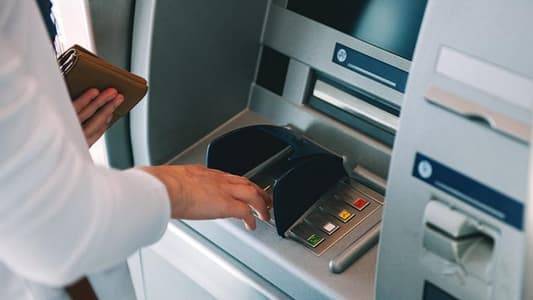The rapid collapse of the Lebanese lira has reached three-quarters of the way to the one-hundred-thousand lira mark against the US dollar, having hit 75,000 lira before retracting to 71,000 lira by yesterday afternoon. This exceptional collapse, which negatively impacts the economic and living crisis, is attributed to political and internal uncertainty, as well as escalating tensions between banks and part of the judiciary regarding successive requests to reveal bank secrecy, retroactively, for accounts belonging to shareholders, investors, and senior managers in specific banks.
Since the 1950s, Lebanon has implemented a banking secrecy system, which was amended last year in response to one of the International Monetary Fund's conditions. Bankers reject what they consider "selective application of the law," viewing it as "targeted," which has led them to close bank branches since the beginning of last week.
The record increase in the dollar's price, which reached 75,000 Lebanese lira (before retracting to 71,000), coincides with the continuation of the general strike initiated by banks for the second consecutive week in response to the expanding legal actions, particularly those filed by the Public Prosecution in Mount Lebanon led by Judge Ghada Aoun against several banks based on complaints received from rights and civic associations.
Today, Judge Aoun herself set a final deadline for several banks to lift the banking secrecy for their board chairpersons and members, as well as auditors under the threat of being prosecuted for "money laundering." A banking official confirmed to "Asharq Al-Awsat" that the declared strike will continue while ensuring liquidity for individuals through ATMs and executing transactions related to documentary credits and import transfers, thus providing additional time tied to a response to the government's request and its president to avoid escalation until the results of official communications become clear, with promised participation from the relevant judicial authorities, aimed at containing the judicial-banking conflict and its repercussions on institutions and markets.
While attention turns to the actions of the "Central Bank of Lebanon" and its central council, which meets regularly every mid-week, it was noted that market confusion is increasing, as the monetary authority refrains from taking new measures in markets, contenting itself with daily reminders to continue exchanges via the "Sayrafa" platform at a rate of 43,600 lira to the dollar, although the volume of transactions has sharply decreased in recent working days, dropping from an average of 50 million dollars to about 10 million dollars daily, due to currency exchange limited to public sector salaries.
The Central Bank provides dollars to public sector employees and other groups within specific caps at the rate of 43,600 lira per dollar, even as the black market exchange rate has reached 75,000.




